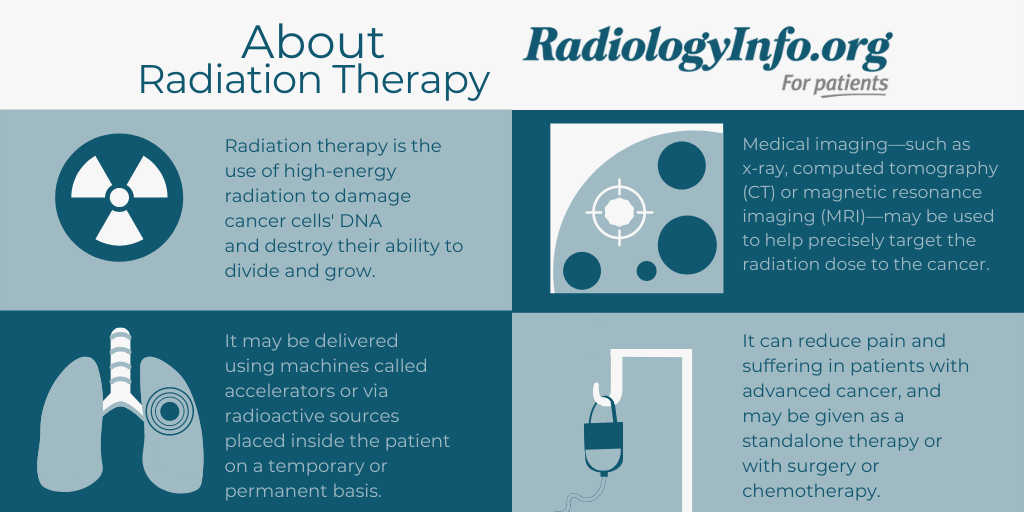Radiation Therapy (Oncology)
 Radiation therapy is the use of high-energy radiation to damage cancer cells' DNA and destroy their ability to divide and grow. It may be delivered using machines called accelerators or via radioactive sources placed inside the patient on a temporary or permanent basis. Because radiation therapy can damage normal cells, medical imaging—such as x-ray, computed tomography (CT) or magnetic resonance imaging (MRI)—may be used to help precisely target the radiation dose to the cancer. Radiation therapy can help reduce pain and suffering in patients with advanced cancer. It may be given as a standalone therapy or in combination with surgery or chemotherapy.
Radiation therapy is the use of high-energy radiation to damage cancer cells' DNA and destroy their ability to divide and grow. It may be delivered using machines called accelerators or via radioactive sources placed inside the patient on a temporary or permanent basis. Because radiation therapy can damage normal cells, medical imaging—such as x-ray, computed tomography (CT) or magnetic resonance imaging (MRI)—may be used to help precisely target the radiation dose to the cancer. Radiation therapy can help reduce pain and suffering in patients with advanced cancer. It may be given as a standalone therapy or in combination with surgery or chemotherapy.
For the benefits and risks of a specific radiation therapy procedure, how to prepare, and more, select a topic below.
Looking for a topic not listed here? Search our complete Index A-Z


